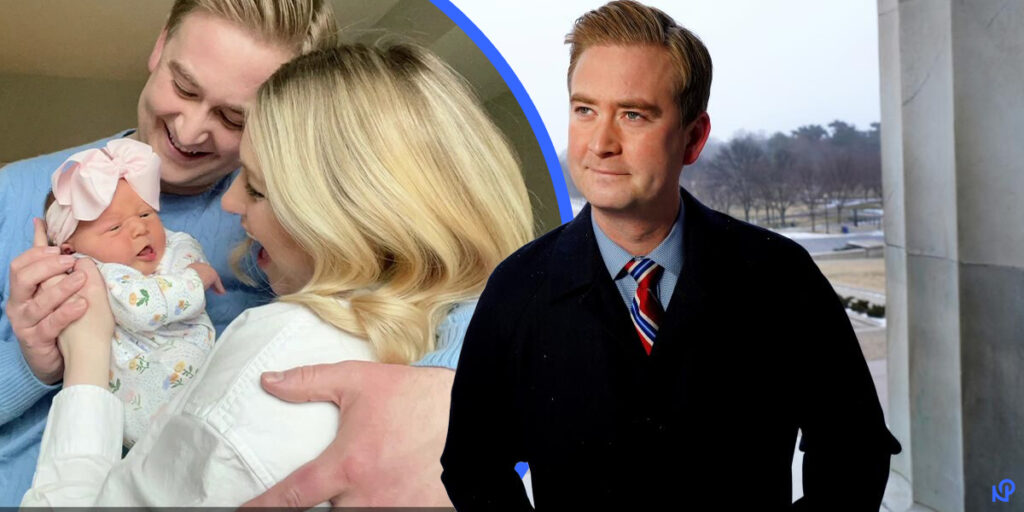Peter Doocy’s Wife Illness, a well-known correspondent for Fox News, has had his share of personal challenges, particularly concerning his wife’s health. Her illness and subsequent recovery have been a journey filled with trials, triumphs, and a remarkable display of resilience. Here are ten astonishing facts about Peter Doocy’s Wife Illness and her triumphant recovery.
Table of Contents
1. The Sudden Onset of Illness
Peter Doocy’s Wife Illness, Hillary Vaughn, a fellow journalist, was leading a vibrant and active life when she was suddenly struck by a severe illness. The onset was rapid and unexpected, catching both her and Peter by surprise. The initial symptoms were vague but alarming enough to warrant immediate medical attention.
2. The Diagnosis
After numerous tests and consultations with specialists, Hillary was diagnosed with a rare autoimmune disease. Autoimmune diseases occur when the body’s immune system mistakenly attacks healthy cells, leading to various symptoms and complications. This diagnosis was a significant blow to the couple, as they had to navigate the complexities of the disease and its treatment.

3. The Impact on Their Personal Lives
The illness drastically affected Peter and Hillary’s personal lives. The couple had to adapt to a new reality that involved frequent hospital visits, rigorous treatment schedules, and the emotional toll of dealing with a chronic illness. Peter, despite his demanding career, became a pillar of support for his wife, balancing his professional responsibilities with his role as a caregiver.
4. The Rigorous Treatment Regimen
Hillary’s treatment regimen was intensive and multifaceted. It included a combination of medications to manage symptoms and suppress the immune system, lifestyle changes to boost her overall health, and regular monitoring to track her progress. The treatment journey was arduous, requiring immense patience and resilience from both Hillary and Peter.
5. The Emotional Rollercoaster
The emotional impact of Hillary’s illness was profound. The couple faced moments of despair, fear, and uncertainty about the future. However, their strong bond and mutual support helped them navigate these challenging times. They also leaned on their families and close friends for emotional and practical support, creating a robust support network that played a crucial role in Hillary’s recovery.
6. The Role of Modern Medicine
Modern medicine played a pivotal role in Hillary’s recovery. Advances in medical technology and treatments for autoimmune diseases significantly improved her prognosis. The availability of specialized care and innovative treatments provided hope and a pathway to recovery that might not have been possible in the past.
7. The Importance of a Support System
The importance of a support system cannot be overstated in the context of chronic illness. Peter and Hillary’s experience underscored the value of having a strong network of family, friends, and healthcare professionals. This support system provided not only emotional and physical assistance but also helped the couple navigate the complexities of the healthcare system.
8. The Power of Positive Thinking
Throughout Hillary’s illness and recovery, the couple maintained a positive outlook. They focused on the progress made, no matter how small, and celebrated each milestone in her recovery journey. This positive thinking, coupled with their determination, played a significant role in overcoming the challenges posed by the illness.

9. The Road to Recovery
Hillary’s road to recovery was long and challenging, but her determination and the unwavering support from Peter made a significant difference. Over time, she responded well to treatments, and her health gradually improved. The couple shared their journey publicly, raising awareness about autoimmune diseases and the importance of early diagnosis and treatment.
10. Advocacy and Raising Awareness
Inspired by their experience, Peter and Hillary have become advocates for autoimmune disease awareness. They use their platform to educate the public about the symptoms, challenges, and treatments of these diseases. Their advocacy efforts aim to support others facing similar challenges and promote research into more effective treatments and potential cures.
Conclusion
Peter Doocy’s Wife Illness journey through illness and recovery is a testament to the power of resilience, love, and modern medicine. Their story highlights the importance of early diagnosis, a robust support system, and maintaining a positive outlook in the face of adversity. As they continue to share their experiences, they offer hope and inspiration to countless others navigating the complexities of chronic illness.
Hillary’s triumphant recovery is not just a personal victory but also a beacon of hope for others. It serves as a reminder that with determination, support, and the right medical care, overcoming even the most daunting health challenges is possible.

FAQs about Peter Doocy’s Wife Illness
1. What illness was Peter Doocy’s Wife Illness diagnosed with?
Hillary Vaughn, Peter Doocy’s Wife Illness, was diagnosed with a rare autoimmune disease, which causes the body’s immune system to mistakenly attack healthy cells.
2. How did the affect Peter Doocy’s Wife Illness lives?
The illness significantly impacted their personal lives, involving frequent hospital visits, a rigorous treatment schedule, and the emotional toll of managing a chronic disease. Peter balanced his demanding career with his role as a caregiver.
3. What treatments did Hillary Vaughn undergo?
Hillary’s treatment regimen included a combination of medications to manage symptoms and suppress the immune system, lifestyle changes to improve overall health, and regular monitoring by healthcare professionals.
4. How did Peter Doocy support his wife during her illness?
Peter Doocy’s Wife Illness provided unwavering support by balancing his professional responsibilities with caregiving, being there for her emotionally, and helping navigate the complexities of the healthcare system.
